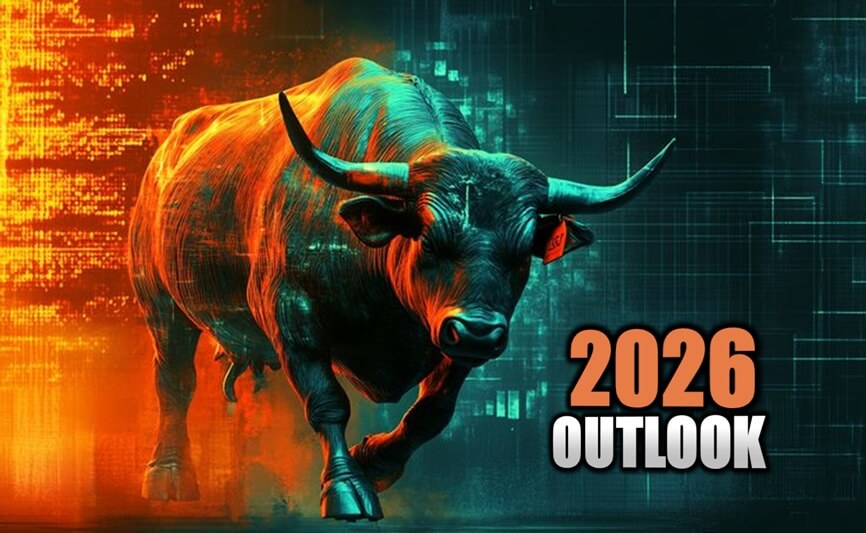The Stock Markets Approaching Dangerous Bubble Territory and Investment Banks Sound Alarm on Market Overheating
Major investment banks warn stock markets are approaching dangerous bubble territory amid overheating concerns. Learn key warning signs.
 Jul 26 2025
Jul 26 2025
Bubble Warnings
Investment banks are increasingly warning that stock markets may be entering dangerous bubble territory. As markets continue breaking records almost daily, leading financial institutions are raising red flags about potential market corrections and the concerning influx of retail investors.
While most analysts continue chasing market gains and upgrading price targets driven by their inherent optimism and financial incentives major investment banks are bucking the trend with sobering assessments. These financial professionals rarely suggest markets are overvalued, as their compensation directly correlates with bullish market performance.
Bank of America strategists, led by Michael Hartnett, have published comprehensive research warning that global stock markets are experiencing dangerous overheating. Their analysis identifies a perfect storm: interest rate cuts, regulatory easing, and massive retail investor inflows creating fertile ground for a market bubble.
The Perfect Storm
Hartnett's research reveals that global average interest rates dropped from 4.8% to 4.4% over the past year, with projections pointing toward 3.9% in the coming year. This decline stems from coordinated rate cuts by central banks across the United States, Europe, Britain, and China.
Simultaneously, US lawmakers and regulators are examining measures to expand retail investor access to capital markets. This combination, according to Hartnett, could trigger exactly what markets fear most: "More retail investors, more liquidity, more volatility – and ultimately, a much larger bubble."
"More retail investors, more liquidity, more volatility and ultimately, a much larger bubble."
Importantly, the analysis stops short of declaring current markets officially bubble-like, suggesting room for continued gains before reaching true bubble status.
Recent months have seen stocks breaking records despite political tensions, new tariffs, and trade risks. Some analysts interpret this as economic resilience, pointing to continued corporate profitability, efficient resource utilization, and reduced tax burdens.
However, skeptics like Hartnett worry that rapid gains are disconnecting stock prices from economic reality. Major institutions including JPMorgan and UBS warn that while optimism may be justified, markets are ignoring substantial risks.
Small Players, Big Impact
Main concern among investment banks is the surge of retail investors entering markets. Unlike institutional investors with sophisticated risk management, retail participants can amplify market volatility during corrections. When combined with increased liquidity from low interest rates, this creates conditions for severe market swings.
The worry extends beyond individual losses – mass retail participation could magnify any market correction, potentially triggering cascading effects across global financial systems.
This isn't Hartnett's first warning. In December, he cautioned that stock prices appeared inflated following 2024's gains. The S&P 500 subsequently fell nearly 18% before recovering. By June, he renewed his warning about rate cut speculation potentially creating new bubble conditions.
Current market conditions mirror historical pre-bubble environments: cheap money, strong inflows, and widespread optimism. However, these conditions can shift rapidly. As Hartnett warns: "The more liquidity and smaller players involved, the higher the volatility and when markets change direction, it can be extremely painful."
Key Takeaways
While markets continue reaching new highs, the warnings from major investment banks suggest caution may be warranted. The combination of low interest rates, regulatory changes, and retail investor enthusiasm creates both opportunity and significant risk.
Understanding market bubble dynamics isn't just about avoiding losses it's about positioning your investment portfolio for long-term success regardless of market conditions. Experienced stock market investors who recognize bubble warning signs from investment banks can implement strategic moves that protect wealth while capitalizing on opportunities.
Portfolio diversification becomes crucial when market volatility increases. Smart investors reduce concentration risk by spreading investments across different asset classes, sectors, and geographic regions. This approach helps minimize exposure to any single market correction while maintaining growth potential.
Risk management strategies recommended by top financial advisors include setting stop-loss orders, maintaining cash reserves, and gradually reducing positions in overvalued sectors. These techniques allow investors to benefit from continued stock market gains while protecting against sudden downturns that often accompany bubble bursts.
The key advantage of staying informed about investment bank warnings is timing. Investors who understand interest rate cycles and market bubble formation can make tactical adjustments before major corrections occur. This proactive approach has historically generated superior returns compared to reactive strategies that only respond after markets decline.
By combining professional insights from leading investment banks with disciplined portfolio management, investors can navigate even the most challenging market conditions while building lasting wealth.
Latest Analysis
01:30 PM
12:10 PM
03:30 AM
Yesterday at 11:43
Unlock Exclusive Stock Insights!
Join StocksRunner.com for daily market updates, expert analyses, and actionable insights.
Signup now for FREE and stay ahead of the market curve!
Why Join?
Find out what 10,000+ subscribers already know.
Real-time insights for informed decisions.
Limited slots available, SignUp Now!
Please note that the article should not be considered as investment advice or marketing, and it does not take into account the personal data and requirements of any individual. It is not a substitute for the reader's own judgment, and it should not be considered as advice or recommendation for buying or selling any securities or financial products.



 Invest.Sensei
Invest.Sensei


















